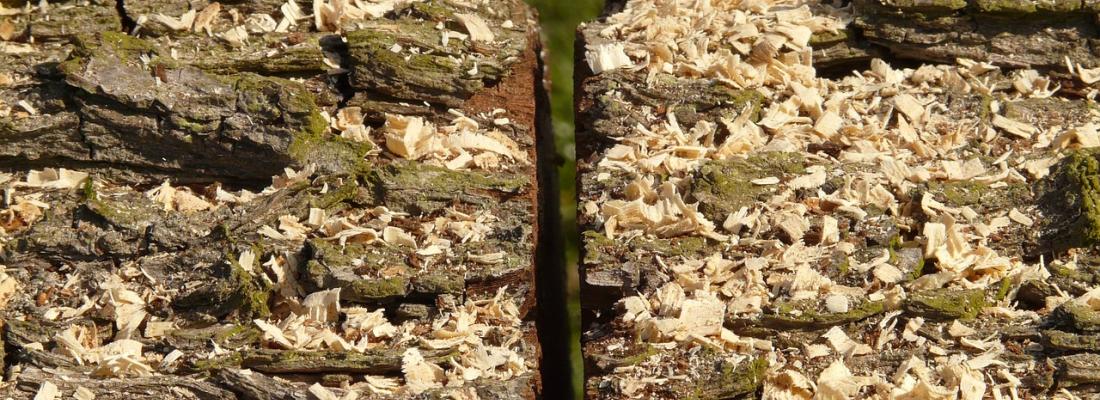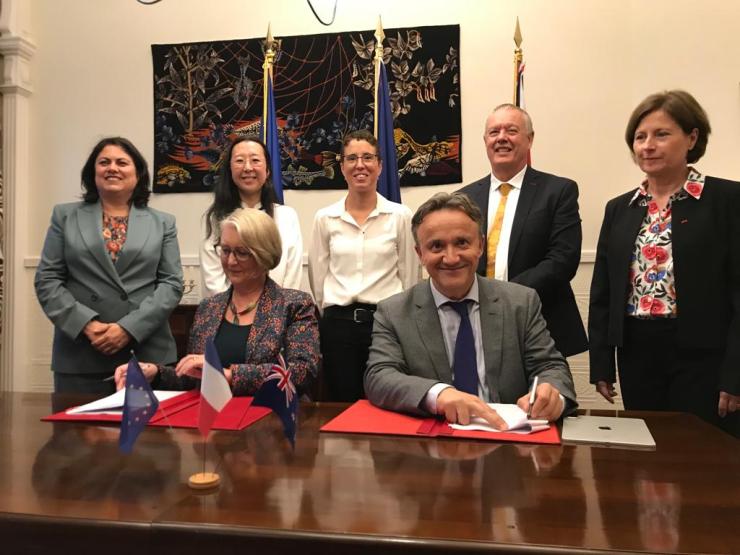Bioeconomy Reading time 3 min
BIOMATA: a new International Associated Laboratory (LIA) for biobased products with the Scion institute in New Zealand
Published on 30 March 2023

This new LIA brings together the “Materials, Engineering and Manufacturing” and “Chemistry and Physics” research groups of Scion, New Zealand’s national forestry research institute, and three research units from INRAE's TRANSFORM division: the Montpellier-based IATE joint research unit for Agropolymer Engineering and Emerging Technologies, which is jointly supervised by INRAE and Institut Agro Montpellier; the Biopolymers Interactions and Assemblies (BIA) research unit in Nantes, and the FARE joint research unit for the Fractionation of AgroResources and Environment of the Université de Reims.
Biobased materials for the products of tomorrow
Using natural resources sustainably, including the reduction of post-harvest losses and the quantity and lifespan of plastics, are a goal of the 2030 Agenda for Sustainable Development of the United Nations. Likewise, lifestyles and technology today are driving a strong demand for the design of new high-tech products that are sustainable. Both New Zealand and France endorse policies in this area to support the transition to a circular bioeconomy. Over the last decade, Scion and INRAE have contributed significantly to this kind of research, and both institutions include such goals in their 2030 roadmaps.
The groups and laboratories involved in the LIA work to develop biorefinery systems that limit the environmental impact of manufacturing processes while remaining economically competitive. This global approach aims to develop processes that harness all of a plant resource by envisaging a range of applications based on the properties of its different parts and by using a combination of chemical, physical and biological transformation processes to minimize inputs and waste. This context creates unique opportunities for the development of joint research initiatives that combine skills and testing resources available in both countries, which helps accelerate the impact of research in this field.
Combining science, technology and the environment
Research conducted by the LIA will focus on:
- Characterising wood-based plant materials, wood by-products and a variety of plant materials for the purpose of manufacturing advanced biobased materials;
- Developing sustainable processes for manufacturing these materials;
- Designing functional materials and objects using 3D and 4D printing and studying their properties.
Research will take the form of synergistic studies conducted at the facilities of the different laboratories involved. It will focus on developing joint methodologies for the characterization and processing of advanced biobased materials, the co-supervision of trainees, doctoral and post-doctoral students, reciprocal research exchange opportunities at the different partner laboratories, scientific mediation activities and the organisation of seminars via videoconferencing whenever possible in the interest of environmental sustainability given the distance between France and New Zealand.

